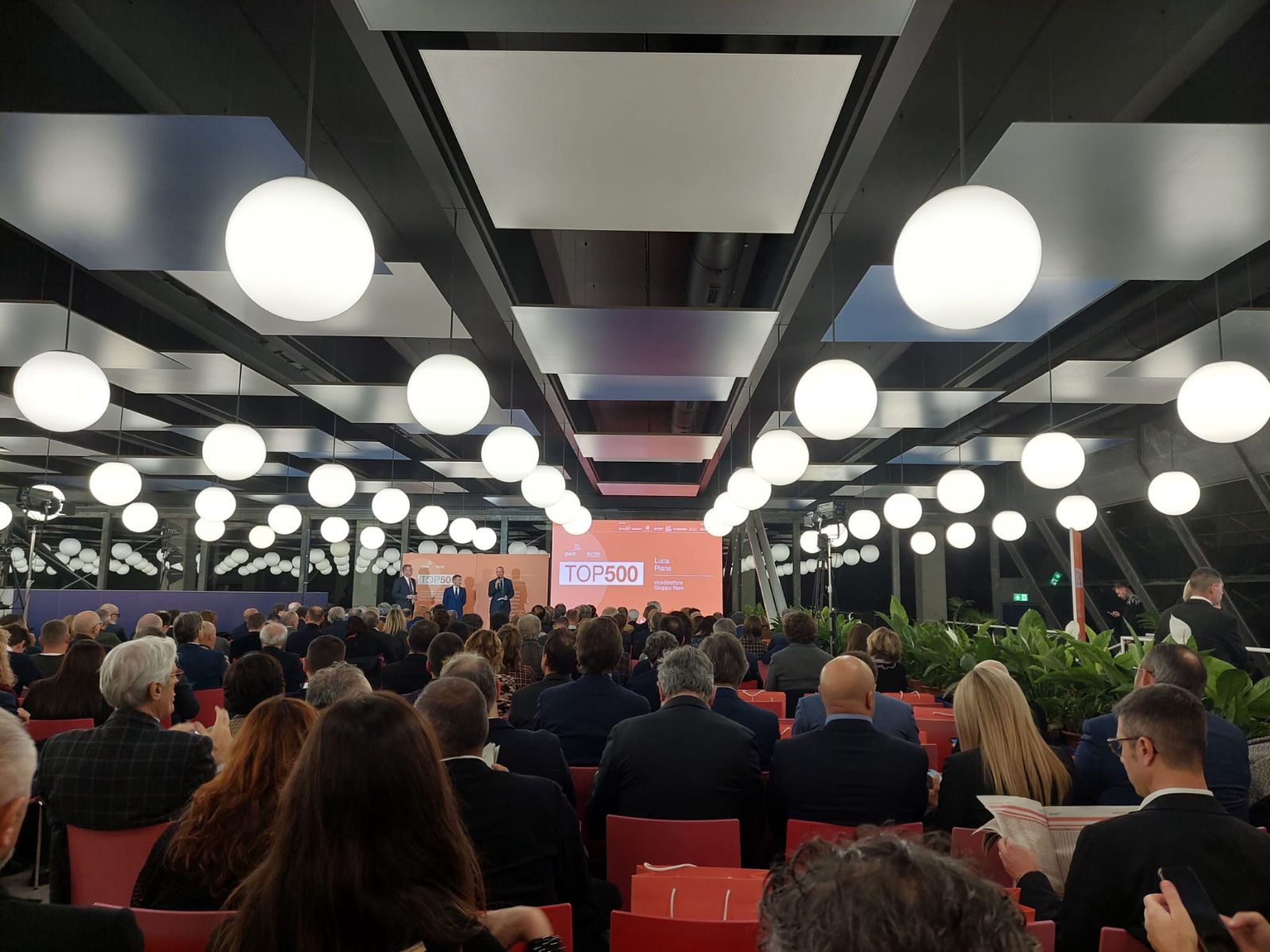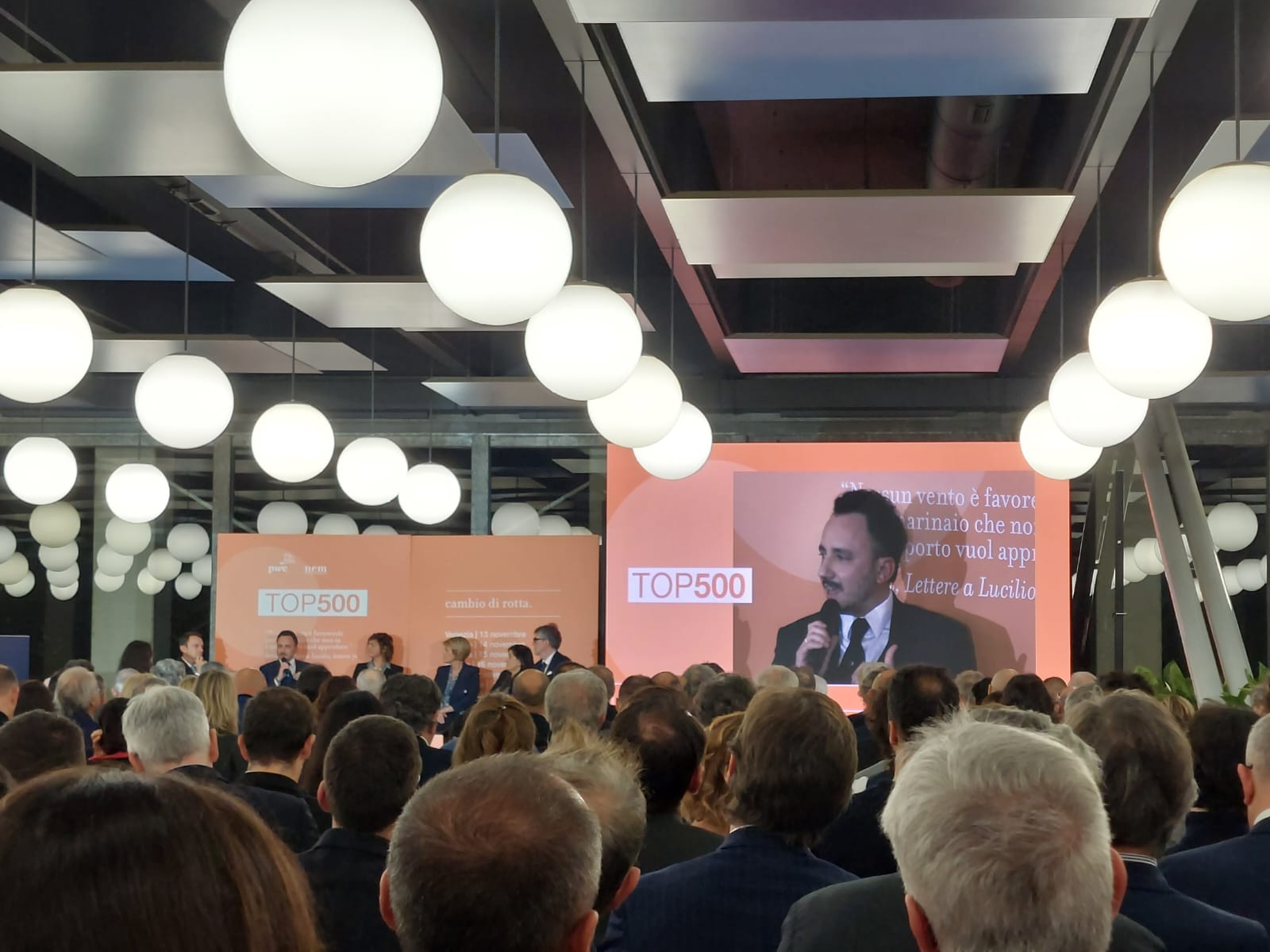
The Top 500 is making a stop in Udine, the report created by Pwc and Nordest Economia which has been photographing, for 10 years now, the top 500 companies in Friuli Venezia Giulia by turnover. Hosted inside the Fantoni in Osoppo, the event saw the stories of some of the Top 500 on stage, who told their stories, going beyond the numbers, talking about projects, strategies, also regarding the very current topic of sustainability. An opportunity, Top 500, to look at the numbers and go further, «telling - began the deputy director of Nem, Luca Piana - this wonderful area of the country and its production realities, showing the faces that made them great».
Pwc has materially created the Top 500 rankings since the first edition, as Manuel Forte, who is a partner of Pwc Italia, recalled yesterday, welcoming the report as «a precious opportunity to take stock of the regional economy through companies largest in terms of turnover in the area. Each stage - Forte recalled - will be characterized by a specific theme: in Osoppo sustainability, in Pordenone supply chain management, in Monfalcone digitalisation and technological innovation". This was followed by a greeting from the deputy director of Nem, Paolo Mosanghini, who reminded the large audience gathered in Fantoni that for a month, Nem, a new company owned by a large group of entrepreneurs from Veneto, has been editing the 6 former Gedi north-eastern newspapers and Fvg "who got involved - said the deputy director - to narrate this territory, with an eye on the economy and businesses".
Companies like Fantoni which, in addition to hosting the event, also offered the public, through its president Paolo Fantoni, an effective overview of the themes that then emerged during the evening. Starting from sustainability. «We live in a historical period in which sustainability is directing the corporate strategies of all supply chains in an exciting way - began Fantoni -. This makes us look proactively to the future. However, let us remember that we live in a framework where the objectives of the Green Deal often become in conflict with the constraints of the stability of European budgets". Fantoni referred to the Government's determination to obtain "less restrictive constraints on all European stability policies, which consider investments differently from the liabilities of individual countries."
Focusing on 2022, Fondazione Nordest researcher Lorenzo Di Lenna contextualized the results of the Top 500, achieved in a context characterized by the increase in the cost of gas and raw materials, inflation and the restrictive monetary policies implemented by ECB, "the rates - said Di Lenna - had not been this high since 2008". Result: the regional GDP, compared to initial forecasts, closed with an increase of +2.7% instead of +5%. In 2023 it should stop at +1%.
In this scenario, the top 500 Fvg companies by turnover have grown, combined with revenues, by 36%, and by 18.3% if the first of the Top is not considered in the calculation, which alone has a particularly significant weight. Excluding the average inflation of 8.1%, growth was therefore equal to +10% overall.
The best performing sectors in terms of revenue increase in 2022 over 2021 in the region were those of the construction supply chains (+20.9%), chemicals, rubber, plastics (+18.8%), machinery and equipment (18.7% ), ports and logistics (17.8%). The least performing, but still growing (almost all), beyond inflation were electrical equipment (12.8%), retail trade (11.4%), business services (9.5%) and finally water, energy and gas (4.1%).
«Almost 9 out of 10 companies closed with a profit, 67% saw Ebitda grow, 67.4% saw profits increase, 32.6 decrease, perhaps - the researcher hypothesized - because they were unable to offload the higher costs of raw materials". Finally, a nod to sustainability. «Over 2 out of 3 companies - concluded Di Lenna - adopt actions aimed at improving the well-being of workers, reducing environmental impact and increasing safety».
And 2023? »It will still be a year of growth - declared Manuel Forte - with national GDP increasing by +0.7%, Fvg's by +1.1%. As for company balance sheets this year, we observe a recovery in margins, linked in particular to the drop in energy and raw material costs, while some sectors are suffering from the drop in volumes." It is more complicated to make predictions for 2024. «Let's think about the tragedy in the Middle East and what effects it could have on a global level. Having said this - concluded Forte - the forecast is that the national GDP will grow by +0.7%, that of Fvg by +0.9%. In 2024 inflation should settle at 2.6% and rates should start to fall."

